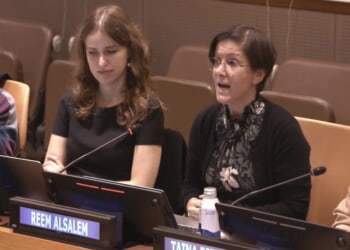I am married to the finest human being on the planet. Her name is Alexandra Denman. I met her in 1966 at a black-tie party at the State Department celebrating Independence Day. We have been together for the balance of our lives, with a few years off to gather our wits.
The first time I met her at her family’s home in Virginia, I also met her father, Colonel Dale Denman Jr., U.S. Army, just back from vicious warfare in Vietnam. He was the handsomest man I had ever met. He was from Prescott, Arkansas. He attended West Point, graduated from there on June 6, 1944, D-Day. He was shipped to Europe almost immediately after a few days off to marry my wife’s mother, Norma Jean Warmack, a staggeringly beautiful woman from Idabel, Oklahoma, and then training in Artillery, his specialty.
In the Spring of 1945, his unit, the 71st Infantry, was fighting its way through Austria, encountering Bitter-Ender Nazis, who fought like madmen even though the Germans had clearly lost the war.
One of Col. Denman’s battles involved his platoon getting pinned down by a Nazi machine gun detachment. He ran through deadly MG-42 fire, so close it knocked the heels off of both of his boots. He got to an abandoned farmhouse, climbed up to its attic, and with a primitive radio, called in artillery fire to silence the machine gun. He saved his men and, for that, was awarded the Silver Star, the second-highest medal for combat gallantry, just behind the Medal of Honor.
Not long after, fighting his way through a dense forest in Upper Austria to a small town called Gunskirchen, he and his men came upon a horror.
It was the Gunskirchen Lager death camp, a subcamp of the much more well-known death camp, a supreme horror called Mauthausen. Most of the SS guards had already fled Gunskirchen, but there were still enough to fight with Nazi vengeance against Col. Denman. He fought back and was among the first through the gates of hell.
Inside, he and his fellows found about 16,000 emaciated, dying, diseased prisoners.
There were also about 6,000 gruesome corpses in the camp and more in the dense forest surrounding the camp so closely that it was almost invisible from the town and any nearby roads.
When Col. Denman told me about the horrors he saw that week, and about how many prisoners were so starved that they died from eating the K-rations that the Americans brought them, he sobbed.
(It was at that first meeting with my soon-to-be father-in-law that I asked him how he felt about the war in Vietnam, which at the time — summer 1966 — was still going hot and heavy and was the focus of endless anti-war demonstrations that Alex and I were in. “Do you favor the war?” I asked him. “It seems as if General Westmoreland is the only man in favor of it. I don’t want to march against it if you are for it.”
“We in the Army hate war,” he said. “We’re the ones who get killed. Keep demonstrating. It’s a meat grinder that we’ll never win.”)
I have been thinking about Gunskirchen Lager and the Nazis and Col. Denman a great deal since. I have been obsessed with it since my dear friend, Judah Friedman, a historian, a journalist, and the producer of a small podcast called “The World According to Ben Stein,” has been keeping me current about the recent explosion of antisemitic, anti-American rhetoric in the USA.
Just recently, on the Internet, I have seen ultra-leftist “commentators” waving immense Nazi swastika flags at pro-Israel, pro-USA people, shouting praise of Hitler. IT IS A NAUSEATING SIGHT AND SOUND.
How did we ever get to this disgusting state? How can we come back? God bless Col. Denman and his men.
READ MORE from Ben Stein:










![Florida Officer Shot Twice in the Face During Service Call; Suspect Killed [WATCH]](https://www.right2024.com/wp-content/uploads/2025/12/Inmate-Escapes-Atlanta-Hospital-After-Suicide-Attempt-Steals-SUV-Handgun-350x250.jpg)





